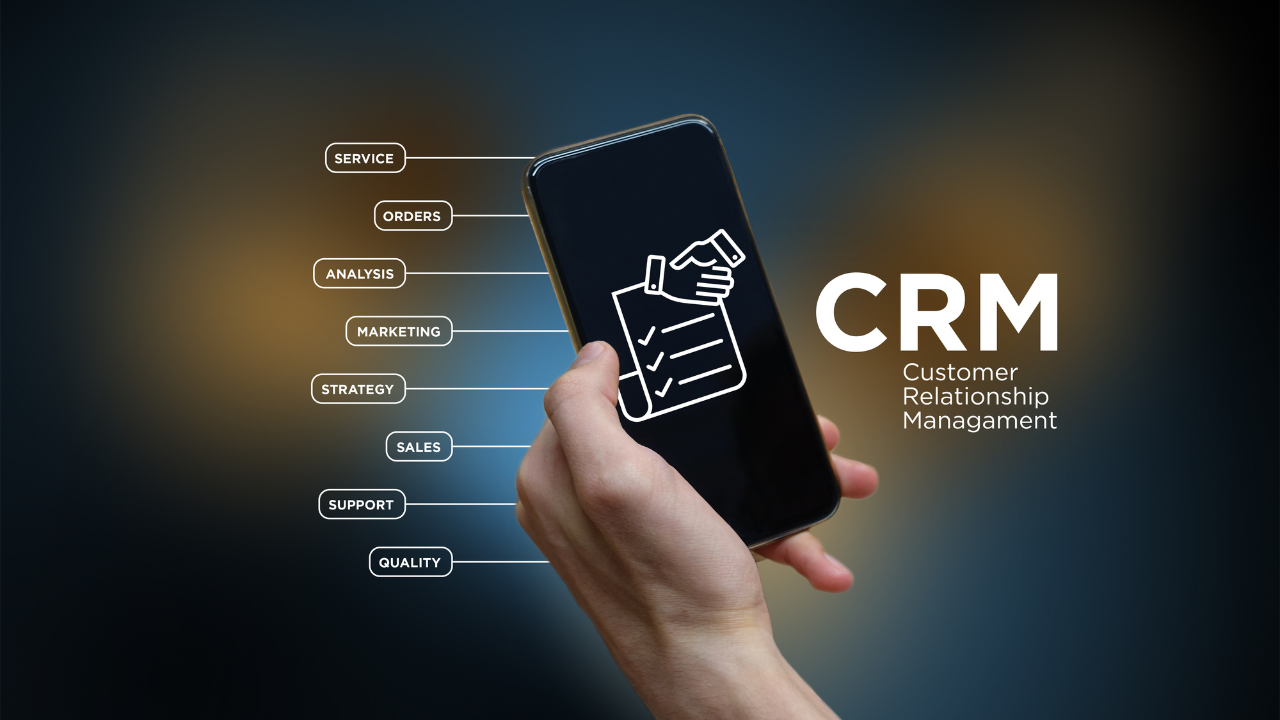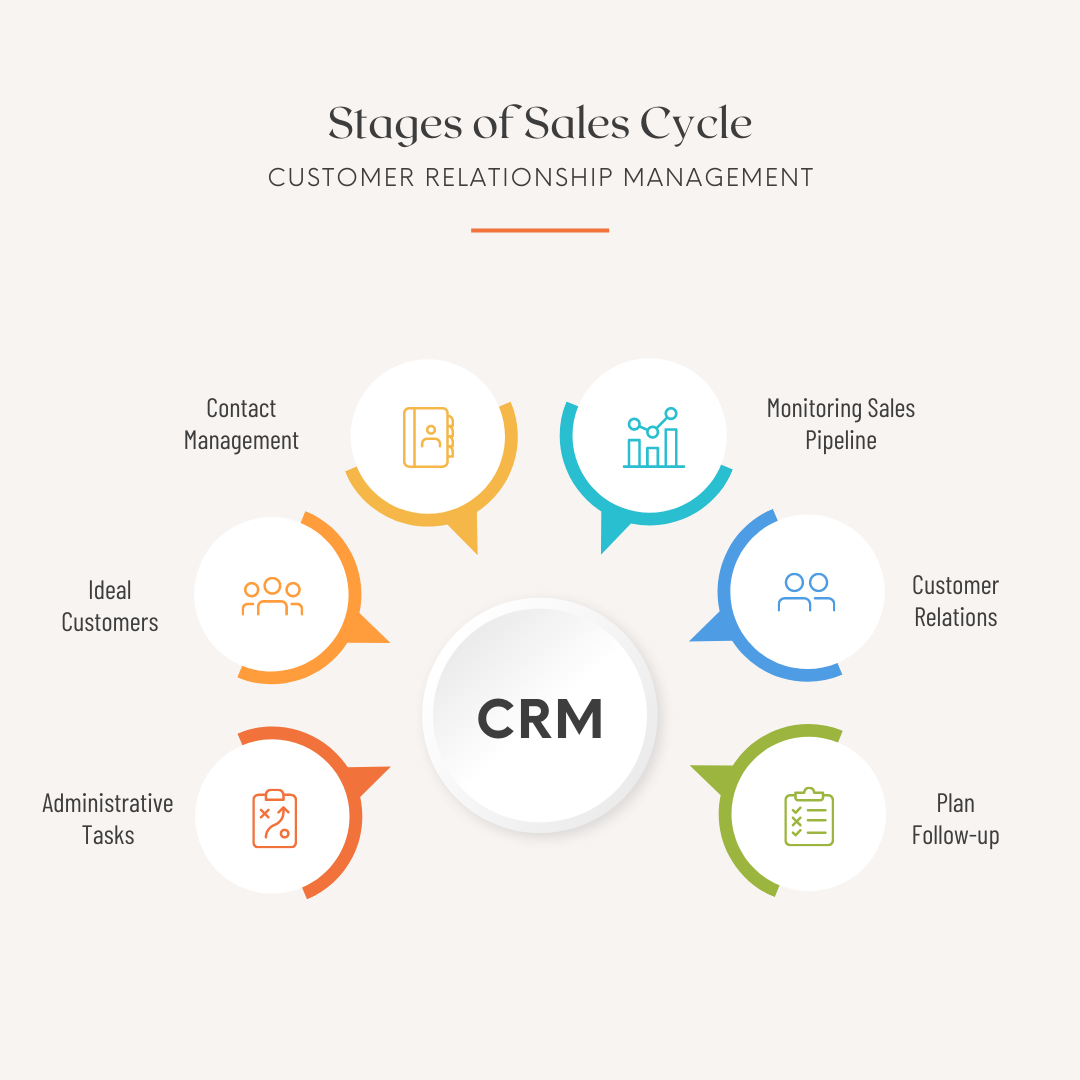Table of Contents
- Introduction
- What is Customer Relationship Management?
- Why CRM is essential for businesses
- The Evolution of CRM
- Key Components of CRM
- CRM Implementation Strategies
- Benefits of CRM
- Challenges in CRM Adoption
- CRM Best Practices
- CRM for Small Businesses
- CRM for Enterprise-Level Organizations
- CRM Trends to Watch
- CRM Integration with Other Systems
- CRM in Different Industries
- Measuring CRM Success
- Implementing CRM for Personal Use
- CRM Case Studies
- CRM Software Comparison
- Choosing the Right CRM Solution
- FAQs
- Summary
- Conclusion
Introduction

Customer Relationship Management (CRM) is a vital tool for businesses of all sizes, helping them build and maintain strong relationships with their customers. In this comprehensive guide, we will delve into the intricacies of CRM, its evolution over time, key components, implementation strategies, benefits, challenges, best practices, and its applications in different industries. By the end of this article, you will have a clear understanding of how to effectively implement CRM within your organization or for personal use.
What is Customer Relationship Management?
Customer Relationship Management, commonly referred to as CRM, is a set of strategies, processes, and technologies that enable businesses to manage their interactions with existing and potential customers. At its core, CRM aims to improve customer satisfaction, enhance customer loyalty, and drive business growth. It encompasses various aspects such as contact management, sales force automation, marketing automation, and customer service and support.
Why CRM is essential for businesses

Implementing CRM is essential for businesses in today’s competitive landscape. By centralizing and organizing customer data, CRM systems allow businesses to gain valuable insights into customer behavior, preferences, and needs. This information can then be leveraged to deliver personalized experiences, targeted marketing campaigns, and improved customer service. CRM empowers businesses to build strong customer relationships, increase customer retention and loyalty, and ultimately drive revenue growth.
The Evolution of CRM
Historical background of CRM
CRM has a rich history that dates back several decades. Its roots can be traced back to the 1980s when corporations started adopting database marketing techniques to better understand and serve their customers. However, it wasn’t until the 1990s that CRM as we know it today began to take shape with the introduction of more advanced software solutions.
How CRM has evolved over the years
Over the years, CRM has evolved from rudimentary customer databases to sophisticated systems capable of comprehensive customer management. With advancements in technology, CRM solutions now offer a wide array of features, including automation, analytics, and integration capabilities. Additionally, the rise of cloud computing has made CRM more accessible and cost-effective for businesses of all sizes.
Key Components of CRM
CRM is composed of several key components that work together to facilitate effective customer relationship management. These components include:
- Contact management: This component focuses on maintaining accurate information about customers, including their contact details, preferences, purchase history, and interactions with the business.
- Sales force automation: Sales force automation streamlines and automates sales processes, enabling businesses to manage leads, track opportunities, and monitor sales performance more efficiently.
- Marketing automation: Marketing automation allows businesses to automate marketing campaigns, track customer engagement, and gather insights to optimize their marketing strategies.
- Customer service and support: This component encompasses tools and processes for managing customer inquiries, providing timely support, and resolving issues to ensure customer satisfaction.
CRM Implementation Strategies
Implementing CRM requires careful planning and execution. Here are key strategies to consider:
- Selecting the right CRM software: Thoroughly evaluate different CRM software options based on your business objectives, budget, and specific requirements.
- Setting CRM goals and objectives: Determine clear goals and objectives that align with your business needs and outline how CRM will help achieve them.
- Training and onboarding employees: Provide comprehensive training to employees to ensure they understand the value of CRM and how to effectively use the system.
Benefits of CRM
Implementing CRM brings a multitude of benefits to businesses, including:
- Improved customer satisfaction and retention: By leveraging customer data, businesses can personalize their interactions and tailor their offerings to meet specific customer needs, leading to increased satisfaction and loyalty.
- Streamlined communication and collaboration: CRM systems enable seamless communication and collaboration across different departments, ensuring everyone has access to relevant customer information.
- Enhanced sales and marketing effectiveness: CRM provides insights into customer behavior and preferences, enabling more targeted and effective sales and marketing efforts.
Challenges in CRM Adoption
While CRM offers numerous benefits, businesses may face certain challenges during the implementation process. Some common challenges include:
- Resistance from employees: Resistance to change from employees can hinder the successful adoption of CRM. Effective change management strategies and thorough employee training can help address this challenge.
- Data privacy and security concerns: As CRM systems store sensitive customer information, businesses must ensure robust data privacy and security measures are in place to protect customer data.
- Integration with existing systems: Integrating CRM with existing systems, such as ERP or e-commerce platforms, can be complex and require careful planning to ensure seamless data integration and workflow.
CRM Best Practices
To maximize the effectiveness of CRM, businesses should follow these best practices:
- Developing a customer-centric culture: Encourage a customer-centric approach within your organization, emphasizing the importance of building and nurturing strong customer relationships.
- Aligning sales and marketing efforts: Foster collaboration between sales and marketing teams to align strategies and share customer insights, driving more impactful sales and marketing campaigns.
- Regularly updating and maintaining CRM data: Regularly update and clean CRM data to ensure accuracy and reliability, allowing for better decision-making and analysis.
CRM for Small Businesses
Small businesses can also benefit from CRM solutions tailored to their unique needs. Considerations for small businesses include:
- Affordable CRM solutions for small businesses: Look for cost-effective CRM options that provide essential features without breaking the budget.
- Tailoring CRM to fit small business needs: Customize the CRM system to align with the specific requirements and processes of a small business.
CRM for Enterprise-Level Organizations
Large enterprises require scalable CRM solutions that can handle complex customer relationships. Considerations for enterprise-level organizations include:
- Scalable CRM solutions for large enterprises: Look for CRM systems that can accommodate a large volume of customer data and scale with business growth.
- Managing complex customer relationships: Enterprises often handle large and diverse customer bases. CRM should enable efficient management of complex customer relationships and interactions.
CRM Trends to Watch
Several emerging trends are shaping the future of CRM:
- Artificial Intelligence in CRM: AI-powered CRM systems can analyze vast amounts of customer data to provide valuable insights and automate processes.
- Mobile CRM and remote access: The ability to access CRM data on mobile devices allows for greater flexibility and seamless customer engagement, regardless of location.
- Predictive analytics in CRM: Predictive analytics leverages CRM data to identify patterns and make data-driven predictions, enabling businesses to proactively meet customer needs.
CRM Integration with Other Systems
Integration between CRM systems and other business systems is critical for seamless operations. Consider these integration possibilities:
- Integration with ERP systems: Integrating CRM with Enterprise Resource Planning (ERP) systems allows for smooth flow of information between departments, improving overall efficiency.
- Integrating CRM with e-commerce platforms: Integrating CRM with e-commerce platforms enables businesses to synchronize customer data and purchase history, facilitating personalized marketing and improved customer experiences.
CRM in Different Industries
CRM has applications in various industries, including:
- CRM in retail and e-commerce: CRM helps retailers and online businesses understand customer preferences, personalize marketing campaigns, and deliver exceptional customer experiences.
- CRM in healthcare: In the healthcare industry, CRM enables better patient engagement, personalized care, and more efficient appointment scheduling and follow-ups.
- CRM in banking and finance: Banks and financial institutions utilize CRM to manage customer relationships, offer personalized financial advice, and streamline account management processes.
Measuring CRM Success
To measure the effectiveness of CRM implementation, consider the following:
- Key performance indicators (KPIs) for CRM: Identify KPIs such as customer satisfaction, customer retention rates, sales conversion rates, and customer lifetime value to gauge CRM success.
- Analyzing and interpreting CRM data: Regularly analyze CRM data to derive insights, identify trends, and make informed business decisions based on the findings.
Implementing CRM for Personal Use
CRM techniques can be applied to personal relationships and personal productivity as well. Consider the following:
- Managing personal contacts and relationships: Utilize CRM tools to organize and manage personal contacts, set reminders for birthdays or anniversaries, and maintain a holistic view of relationships.
- Using CRM for personal productivity: Adapt CRM methodologies to manage personal tasks, prioritize activities, and set goals, allowing for greater efficiency and effectiveness.
CRM Case Studies
Real-life case studies highlight effective CRM implementation and its impact on businesses. Some examples include:
- Success stories showcasing effective CRM implementation: Explore case studies of businesses that have successfully implemented CRM, improved customer relationships, and achieved measurable success with CRM.
CRM Software Comparison
To guide you in selecting the right CRM software, consider exploring reputable CRM software solutions and their features. Some popular CRM software options include:
- CRM Software A: Key features include contact management, sales automation, and robust analytics.
- CRM Software B: Noteworthy features include marketing automation, social media integration, and customizable dashboards.
- CRM Software C: This software boasts advanced customer service and support features, intuitive user interface, and integrated email marketing capabilities.
Choosing the Right CRM Solution
When selecting CRM software, consider the following factors:
- Alignment with business goals and objectives: Choose a CRM solution that aligns with your business needs and growth objectives.
- Scalability and customization: Select a CRM system that can scale with your business and accommodate future requirements. Additionally, ensure it offers customization options to tailor the system to your specific needs.
FAQs
To address common questions about CRM, we provide the following FAQs:
- What is CRM and why do I need it?
- How do I convince my team to adopt CRM?
- Can CRM integrate with my existing systems?
- What are some common challenges in CRM implementation?
- What are the signs of a successful CRM system?
Summary
To summarize the key points discussed in this article:
- CRM is a set of strategies, processes, and technologies used to manage customer relationships.
- CRM is crucial for businesses as it improves customer satisfaction, streamlines communication, and enhances sales and marketing effectiveness.
- CRM has evolved over time, from basic databases to comprehensive systems with advanced features.
- Key components of CRM include contact management, sales force automation, marketing automation, and customer service and support.
- Successful CRM implementation requires selecting the right software, setting clear goals, and providing comprehensive training.
- CRM offers benefits such as improved customer satisfaction, streamlined communication, and enhanced sales and marketing effectiveness.
- Challenges in CRM adoption include resistance from employees, data privacy concerns, and integration with existing systems.
- Best practices for CRM implementation include developing a customer-centric culture, aligning sales and marketing efforts, and regularly updating CRM data.
- CRM is applicable to both small businesses and large enterprises, with tailored solutions available for each.
- Emerging trends in CRM include the integration of artificial intelligence, mobile CRM, and predictive analytics.
- CRM can be integrated with other systems, such as ERP and e-commerce platforms, to enhance overall business operations.
- CRM has applications in various industries, including retail, healthcare, and banking.
- Measuring CRM success involves identifying key performance indicators and analyzing CRM data.
- CRM techniques can also be applied to personal relationships and personal productivity.
- Real-life case studies and CRM software comparisons can provide insights for effective CRM implementation.
- When choosing a CRM solution, consider factors such as alignment with business goals and scalability.
Conclusion
In conclusion, understanding customer relationship management is crucial for businesses seeking to develop strong customer relationships and drive growth. By implementing CRM effectively, businesses can improve customer satisfaction, streamline operations, and enhance sales and marketing efforts. Whether you are a small business owner, a manager in a large enterprise, or an individual seeking to enhance personal relationships or productivity, this comprehensive guide equips you with the knowledge and strategies needed to leverage CRM successfully. Embrace the power of CRM, and unlock the full potential of your customer relationships.
Follow us on our Instagram – @squarebox.in
Read more interesting articles and blog by clicking here.




